Communicating Christ in a Multicultural World
2. Religion in Culture, Society and Politics
Those who are sharing the Gospel today must keep sending it to new addresses. The recipients are constantly changing their addresses and no one is forwarding the mail.
Lesson Objectives
In the previous article we discussed the concept of "religion", in a globalised world. This lesson continues to explore the foundational issues, in connection with culture. It then looks at religious expression in multicultural Australia and discusses the changing face of religion observance in Australia, and what this means for the messaging and shape of the future church.
What is
Culture?
The 1980 South African movie "The Gods Must Be Crazy" (written and directed by Jamie Uys with a low budget, it became an icon) indicated how differences in cultures (compounded by ethnocentric views) can lead to false assumptions and misunderstandings between people that can take a long time to heal.
Culture matters. Christians who desire to touch the world for Christ need to understand the role of culture in informing what people believe and how they behave.
"Culture" has many facets; for example, it is the way we:
- think about ourselves and find meaning
- relate to one another and establish relationships
- structure society and frameworks of power and economics
- construct social movements, such as religions
- understand the world around us
- interpret events
- determine social mores (norms for behaviour)
- provide and use food and shelter
- act (dance, dress, marry, work, bring up children, buried our dead)
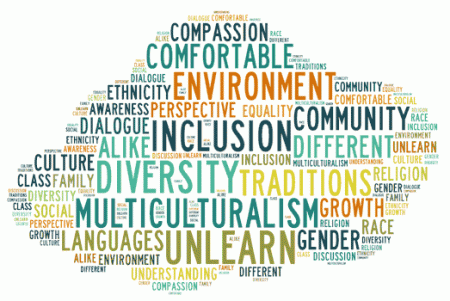
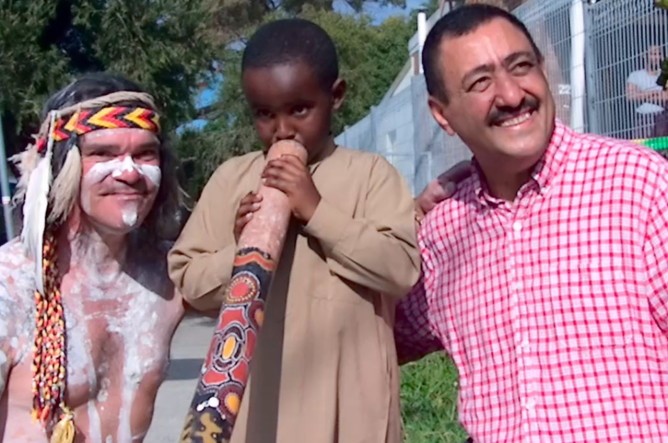
Culture is not isolated; it is shared with other people. Culture unifies people through common experiences. It also marks us out from others. People generally learn culture by the society in which they grow up, eg through language, watching and imitating behaviours, being corrected or encouraged as the case may be.
Every society has multiple cultures, reflected in art, literature, music, beliefs, customs, institutions, inventions, language, technology and values. "Popular" culture includes arts, literature and entertainment, expressed by media such as television, radio, recordings, advertising, sports, hobbies, fads and fashions. Culture is also reflected in the use of symbols (religious, national, gender, slogans, flags). Religion has been a key source of inspiration in the arts. Some of the most beautiful buildings in the world are houses of worship. Much of the world's greatest music is religious. Religious stories have provided countless subjects for paintings, sculptures, literature, dance and movies.


Multiculturalism
Multiculturalism recognizes that different collocated cultures are good/desirable; it welcome and encourages diversity, for example through diver immigration. Multiculturalism works best in societies with different ethnic groups and a political system that celebrates differences and provides freedom of expression.
However, ethnic groups that keep their values and traditions can also threaten social harmony and national unity. People sometimes feel confused and uneasy when they deal with people of other cultures, especially if those cultures seek to dominate the rest, or if "other" people become ghettoized.
"Ethnocentrism" is an attitude that one's particular culture is best. The opposite view is a form of cultural relativism, which contends that no culture should be judged by other standards; this can present problems if carried to extremes, eg undermining the value of traditional marriage, or practices that tolerate infanticide, cannibalism or torture.
Culture can be local (parochialism) or national (nationalism). Australia's culture has been influenced by:
- the original inhabitants (consider place names)
- the first settlement experience (convicts and free settlers)
- shared ancestry, "home" in Europe, monarchy)
- national/common experiences (ANZAC tradition, Olympic Games victories)
- national values (egalitarianism, "fairness", mateship)
- religious values (eg Judeo-Christian heritage)
- economic views ("Australia is part of Asia", buy locally made goods)
- varied ancestry
- waves of new arrivals (planned and unplanned settlement from other parts of the world).
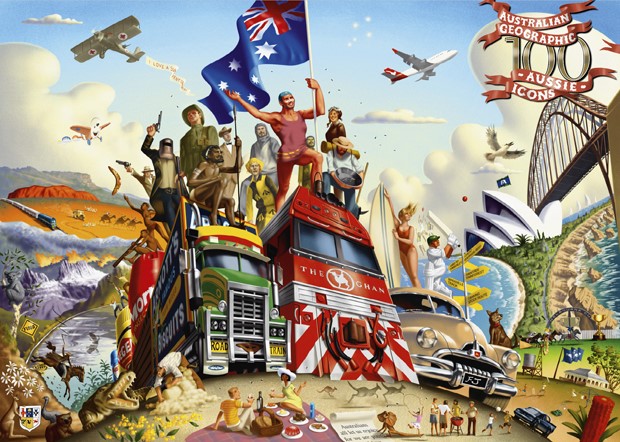 Many people follow certain religions because of heritage, tribe or family. Judaism, Islam and Christianity have been major influences in the formation of modern cultures.
Many people follow certain religions because of heritage, tribe or family. Judaism, Islam and Christianity have been major influences in the formation of modern cultures.
They have also played a crucial role in developing regional cultural values and practices (and prejudices), such as in the Middle East. Cultures of Asia have been shaped by Hinduism, Buddhism, Confucianism, Daoism and Shintoism. Most religions have been influenced by older ones. Judaism influenced Christianity, which in turn influenced Islam and the Baha'i faith. Hinduism influenced Buddhism, which sprang directly from it.
Many rituals commemorate historical events, eg Passover recalls the meal the Israelites ate before their departure from slavery in Egypt. Christian celebrations of Communion (various formats) are related to the last meal that Jesus shared with His disciples before His death. Many Hindu rituals reflect ancient stories.
Rituals also mark important life events, eg ceremonies make sacred birth. circumcision. Adulthood, marriage, death. Rites of passage (from one stage of life to another) serve to accept young people into the religion, society and responsibility. In Judaism, circumcision is performed on baby boys. Some Christians "baptize" babies soon after birth: others baptize only youths or adults. Traditional Aboriginal circumcision signalled passage to manhood
Culture is dynamic and constantly changing; some people fear, oppose change. The effects of change can be to:
- substitute one culture for another, eg using the vernacular instead of Latin in Roman Catholic liturgy
- lose culture, eg young Catholics not using a rosary, or Muslims not praying 5 times a day
- increment culture (add to it), eg television, McDonalds, social media
- fuse new culture(s) onto what is already there, eg celebrating Christmas in July
We need to understand culture if we are to appreciate the nuances of belief systems and how to reach people with the Gospel, eg
- the historical role of the caste system in India (in Hinduism in particular, but not exclusively)
- the influence of history and Eastern and Western cultures in defining modern Judaism (Sephardic, Ashkenazi, Hassidic, Liberal)
- links between Serbian Orthodox tradition and Serb nationalism in Kosovo, and cultural fault lines between Serbia and its neighbours that go back to around 450AD.
- the role of Confucianism in the development of Filial Piety, the basis of parent/children relationships in much of Asia
- the role of religion in establishing lines of authority in African tribal situations (either witchdoctors or sheikhs)
- Franco's Catholic Spain, when to be a Spaniard was to be a Catholic and Protestants were jailed (priests and nuns in Spain are still paid as public servants)
- Islam as total culture
- the role of "God" in American public life ("civic religion")
- militant Buddhism in ongoing struggles in Sri Lanka
- different religious groupings in Somalia
- the impact of cargo cults in Melanesia
- the role of the Dreaming in Aboriginal history and self-determination
- the influence of Irish Catholicism in the Australian Labor Party
- reaction in Australia against funding for schools (state aid debate)
- links between "hippies" of the 1970s and New Age movements of the new century
We need to understand inter-linkages, eg what happens when a Muslim becomes a Christian believer (in some countries the death penalty is imposed or the affected party is expelled from family, alienated from economic life).
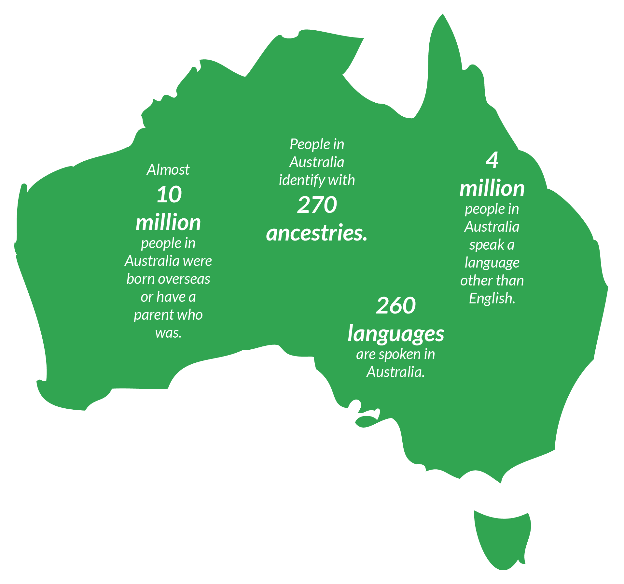
One or Many
Role of People Movements, cf individualistic society. In the West, individualism predominates, eg 80% of Christian books are reader-centred ("my" family, church life. spiritual growth, rituals); the decision to follow Christ is usually an individual one.
The culture/subculture relationship: 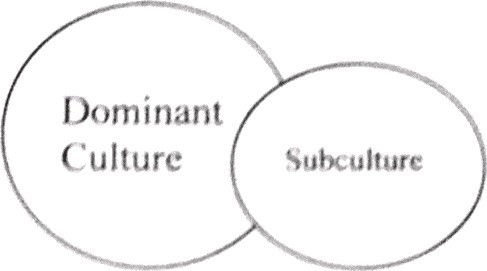
Cultural language - how words change meaning
"Fundamentalism"
- extreme legalism, early-mid 20th Century
- evangelicalism in mid-late 20th Century' the term "fundamentalist" is often used pejoratively by the media
- violent expressions of Islam, Hinduism, etc in recent decades (Islamic Jihad or Hezbollah).
Christian "fundamentalists" have exercised great social/political influence, especially in the United States. Christian fundamentalist leaders include television evangelists. Less today than in the 1980s (Religious "Right" less organised now; Moral Majority disbanded).
Hindu fundamentalists exercise political power across in India (especially BJP under Prime Minister Modi). In 1992, extremists who were responsible for the destruction of a Muslim mosque built on the remains of a Hindu shrine in the town of Ayodhya, gained many followers. Their action angered local Muslims. Such extremists have stirred up riots throughout India's history.
Islam and Judaism have also developed strong fundamentalist movements, both in the West and in the Middle East. Islamic revivalists (people who seek to reawaken the faith) have considerable political influence in such countries as Algeria, Egypt, and Iran. Hasidism is gaining a large number of followers among Jews in Israel and the United States.
"Born again"
- a Christian term, taken from John 3
- re-birthing
- "born again Buddhist"
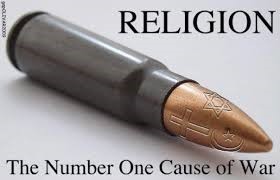 Seeking a peaceful way of life many Westerners turn to new religions or movements, particularly those with origins in the East. A large number of these people seek fulfilment in the teachings of Asian religions, such as Buddhism; Zen, a form of Buddhism, emphasises meditation. Others turn to supernatural experiences such as astrology, spiritualism, paganism. Astrology is based on the belief that the planets and other heavily bodies influence human affairs. Spiritualists believe that it is possible to communicate with the spirits of the dead. Pagans find inspiration from ancient religious cults. Many blame religion (with some justification) for all the ills in society.
Seeking a peaceful way of life many Westerners turn to new religions or movements, particularly those with origins in the East. A large number of these people seek fulfilment in the teachings of Asian religions, such as Buddhism; Zen, a form of Buddhism, emphasises meditation. Others turn to supernatural experiences such as astrology, spiritualism, paganism. Astrology is based on the belief that the planets and other heavily bodies influence human affairs. Spiritualists believe that it is possible to communicate with the spirits of the dead. Pagans find inspiration from ancient religious cults. Many blame religion (with some justification) for all the ills in society.
Religion in Australia
In an optional question in the 2011 Census, 61.1% of the Australian population declared some variety of Christianity. Historically the percentage has been far higher (74% in 1996) and the religious landscape of Australia is changing and diversifying. 22.3% (up from 12.9% in 1996) of Australians stated "no religion" and a further 9.4% chose not to answer the question. The remaining population is a diverse group which includes Buddhists (2.5%), Muslims (2.2%), Hindus(1.3%) and Jews (0.5%). Here are details for the top 20:
| 2011 | 2006 |
|---|
| Catholic - 25.3% | Catholic - 25.8% |
| No religion - 22.3% | Anglican - 18.7% |
| Anglican - 17.1% | No religion - 18.7 % |
| Uniting Church 5.0% | Uniting Church - 5.7% |
| Presbyterian and Reformed - 2.8% | Presbyterian and Reformed - 3.0 % |
| Eastern Orthodox - 2.6% | Eastern Orthodox - 2.7% |
| Buddhism - 2.5% | Buddhism - 2.1% |
| Islam - 2.2% | Islam - 1.7% |
| Christian, nfd - 2.2% | Baptist - 1.6% |
| Baptist - 1.6% | Christian, nfd - 1.6% |
| Hinduism 1.3% | Lutheran - 1.3% |
| Lutheran - 1.2% | Pentecostal - 1.1% |
| Pentecostal 1.1% | Hinduism - 0.7% |
| Judaism - 0.5% | Judaism - 0.4% |
| Jehovah's Witnesses - 0.4% | Jehovah's Witnesses - 0.4% |
| Sikhism - 0.3% | Salvation Army - 0.3% |
| Seventh-day Adventist - 0.3% | Other Protestant - 0.3% |
| Other Protestant - 0.3% | Seventh-day Adventist - 0.3% |
| Salvation Army - 0.3% | Church of Jesus Christ - 0.3% |
| Latter-day Saints - 0.3% | Latter-day Saints - 0.3% |
Key points
- 'No religion' is the response that shows the largest growth in number, from 3,706,553 persons in 2006 to 4,796,787 people in 2011 - an increase of 29.4 per cent.
- Hinduism represents the largest proportional growth of the three most common non-Christian religious affiliations, from 148,125 persons in 2006 to 275,535 persons in 2011 - an increase of 86 per cent.
- Anglican represents the largest decrease in most common Christian religions (Anglican and Catholic) from 3,718,248 in 2006 to 3,679,908 in 2011, a decrease of 38,340 persons, or 1 per cent.
- In spite of the public profile of some large Pentecostal churches (eg Hillsong), the overall number of adherents is small and is barely keep up with population increase.
Source: Australian Bureau of Statistics, www.abs.gov.au/census
Religion and Politics
People claim religion and politics don't mix, but even in our culture this is not true. Judeo-Christian input has traditionally influenced views on such issues as: Sunday trading; public holidays; contraception; use of alcohol, smoking, gambling; gun control, capital punishment. The major political parties have drawn support from sectional groups, although this is decreasing.
Christian groups are active in political life, eg lobby groups such as Australian Christian Lobby, Parliamentary Christian Fellowship, Opening of Parliament.
Political and legal views: Republicanism; Socialism. Temporary banning of Scientology. Recognition of Astrology as a religion by the Australian High Court.
Personal involvement: people claim to be tolerant but object to a mosque with a 20 metre minaret being built in their street (consider opposition in cities such as Bendigo during 2015) . Other clashes include: Sikhs' wearing turbans at work, Muslim women wearing (or not wearing) the hijab; work breaks for prayer.
Print and electronic media focus on the "different", eg ignore major denominational conferences but report on peripheral events such as the annual "Blessing of the Fleet" at Bega; ignore miracles but focus on small cults.
One of the consequences of multiculturalism (and, to a lesser extent, ecumenism) has been to "celebrate" religious differences as diversity and concentrate on common values and goals. The impact of this has to make evangelicalism appear intolerant (or "unAustralian"). Some prejudices are, however, shared by the community, eg Children of God; Jim Jones, David Koresh, Ananda Marga, Islamic Jihad/ISIS.
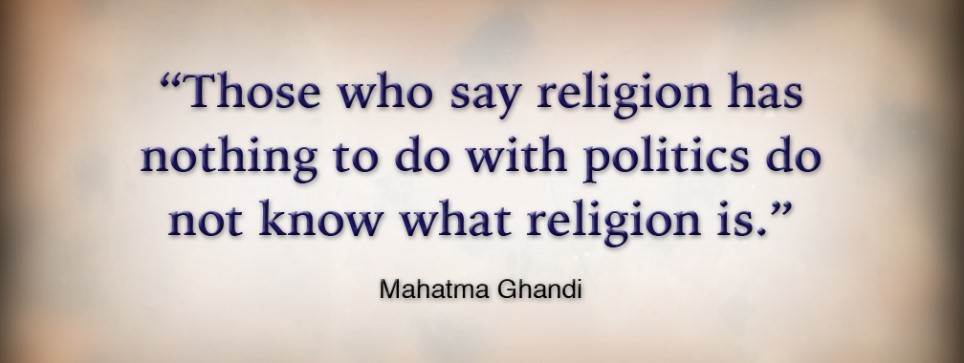
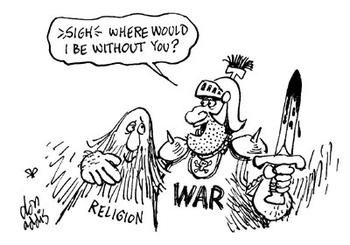
Presenting the Gospel
The traditional presentation of the Gospel in Australia has been influenced by Western philosophies, history and notions of individualism. It has looked something like the following:
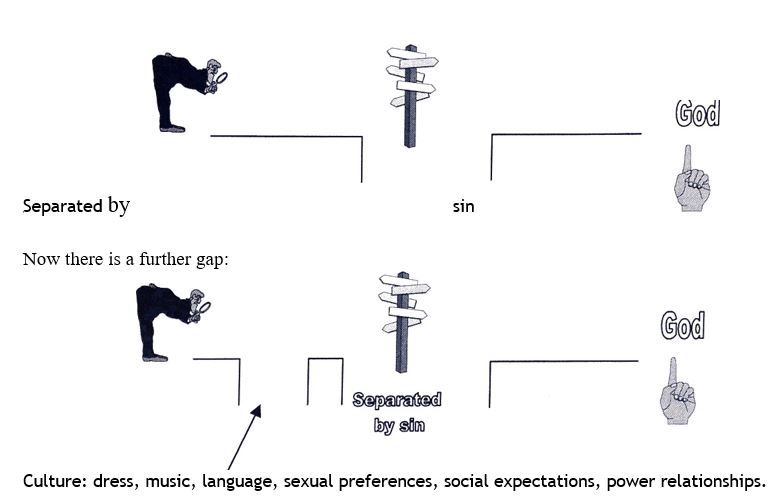
As people have gone from book to screen there has been a further cultural shift. The old (and some not so old) images no longer work. People are experimental, interactive, multi-screen, multi-channel; affected by a wider range of symbols, music, language, sound. They are increasingly accustomed to virtual reality (real in effect but not in fact). If we are to reach them the narrative has to be culturally relevant (without changing the central message). We need to engage affectively and imaginatively.
Christianity in the 21 century needs to be:
- relevant
- musically in-tune
- diverse
- high tech
- relational
- real
- uncomplicated
Changing Patterns
Attendance patterns are changing. People are increasingly busy. They don't have time for meaningless repetition- there has to be value added in going to church even once on a Sunday.
The Christian formation of young people is changing. Lots of discipleship courses are available, however not all of them are in "church". Wesley built the "class" system to skill new converts. We need to provide solutions to the same sort of issue.
Young people have a fear - almost a phobia- about distinctiveness. Grow up with fear of being rejected because they are different. Fear of starting out. There has been a growth of pluralistic inclusiveness. Not a theological problem, but an emotional one.
In this context, the small, traditional, suburban church, with a brick hall and manse out the back faces a bleak future. Many now only appeal to an aging population (the average age of Anglicans on Sunday is over 50 years of age). Consider the number of churches converted to retail outlets or homes, or being sold and re-badged as mosques or temples.
The church of the future must employ culturally sensitive evangelism, without being seduced by pressure to conform culturally. Need to have relevant structural renewal in parallel with spiritual renewal.
Religious differences have an impact on Australian society, eg social categories and ethnicity give rise to differences. Social differences have an impact on religious expression, eg age, education patterns, economic conditions, family make-up.
Discussion: If you were organising a new "Australian religion " what would you include and what would it look like? How would it be marketed? Organised? Governed? What would be its "emphasis"? Compare it with what you know of traditional Christianity in Australia. What would be the same/different?
Myths That Need to Be Confronted When Building New Paradigm Churches
- denominational franchise model - all churches have to look alike, have the same name and sound alike
- the village/family cross-generational church is the only model
- build "a stable church for a stable population" - dated
- there is a common Australian culture to which we relate
- people under 45 are denominationally loyal
- pastoral maintenance will work
- new churches can only be planted in new housing estates
- styles of worship from the 1950s still work
- personal faith is caught by others by association
- the only model of ministry is the ordained pastor
- people understand our language: King of Kings, Lord of Lords, Lord of Hosts; stewards of God's grace; Suffering Servant; meditation; House of God
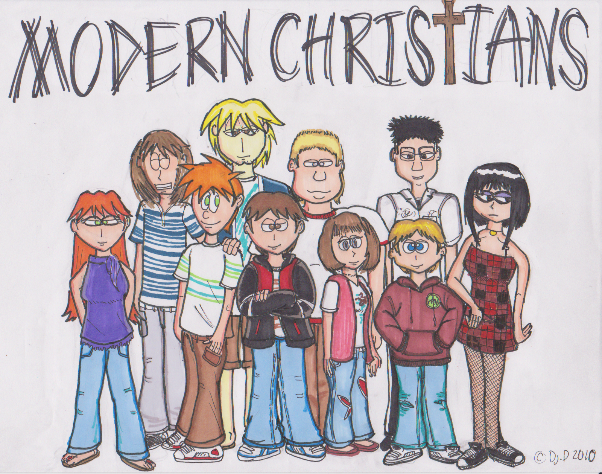
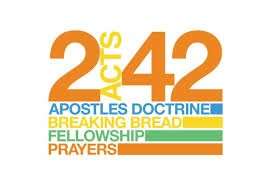
Characteristics of Australia's Top Current Churches
- empowering leadership
- gift-oriented ministry
- passionate spirituality
- functional structures
- inspiring worship services
- holistic small groups
- need-oriented relationship
- loving relationships
- good Biblical teaching
- cross-cultural
ALL of these factors need to be present. Like the "water in a barrel" analogy we need all planks in place and must remember the water (growth) only comes as high as the lowest plank. There is no single model. If we take the above issues into account and seek God for what He is saying to US about OUR neighbourhood, He will give us the most effective strategies.
More Revealing Statistics About Belief in Australia
Survey Results: NCLS/Edith Cowan University Survey of 8,500 people
Percentages of Respondents Who Claimed they Believed in:
| God | 74 |
| Heaven | 53 |
| Deity of Jesus Christ | 43 |
| Hell | 32 |
| Resurrection | 43 |
| Devil | 33 |
| Life After Death | 45 |
| Reincarnation | 27 |
"Religion" is back on the agenda. People are prepared to believe anything, but they are not necessarily prepared to come to church.
Having briefly considered the meaning of religion in culture, we now turn to non-evangelical expressions of Christianity (or movements that claim to be Christian) before considering a selection of non-Christian religions. All are within reach of every one of us, and if we are to be able to reach followers with the Good News about Jesus Christ we need to understand how they operate and why only the Gospel really "works".




 Many people follow certain religions because of heritage, tribe or family. Judaism, Islam and Christianity have been major influences in the formation of modern cultures.
Many people follow certain religions because of heritage, tribe or family. Judaism, Islam and Christianity have been major influences in the formation of modern cultures.


 Seeking a peaceful way of life many Westerners turn to new religions or movements, particularly those with origins in the East. A large number of these people seek fulfilment in the teachings of Asian religions, such as Buddhism; Zen, a form of Buddhism, emphasises meditation. Others turn to supernatural experiences such as astrology, spiritualism, paganism. Astrology is based on the belief that the planets and other heavily bodies influence human affairs. Spiritualists believe that it is possible to communicate with the spirits of the dead. Pagans find inspiration from ancient religious cults. Many blame religion (with some justification) for all the ills in society.
Seeking a peaceful way of life many Westerners turn to new religions or movements, particularly those with origins in the East. A large number of these people seek fulfilment in the teachings of Asian religions, such as Buddhism; Zen, a form of Buddhism, emphasises meditation. Others turn to supernatural experiences such as astrology, spiritualism, paganism. Astrology is based on the belief that the planets and other heavily bodies influence human affairs. Spiritualists believe that it is possible to communicate with the spirits of the dead. Pagans find inspiration from ancient religious cults. Many blame religion (with some justification) for all the ills in society.




